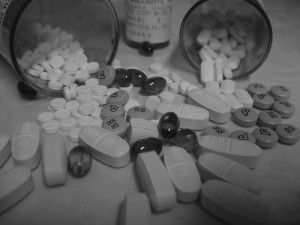I have always thought that getting addicted to something is only for the weak-minded or weak-willed. I thought this up until last year when I realized that I was going through a pack of gum a day. I got into the habit of popping a piece of Cobalt flavoured 5 gum into my mouth, chewing it vigourously for five minutes and spitting it right back out. The cycle would continue all day. I started searching the Internet for why I was addicted to gum and what I could do to stop this addiction. Google told me that what I was suffering from was a bad habit.
Bad habits and addictions can often be confused with each other . Medical News Today defines a bad habit as something that you choose to do and can stop doing if you want to, whereas an addiction is something that you are unable to stop doing without getting help. Bad habits can very often lead to addictions, but in the case of gum the only way it could lead to addiction is if it was pumped with cocaine.
Addictions are fuelled through receptors in the brain. They can be evident through cravings, impulsive actions, and continued usage with negative side effects. Drug and alcohol addictions can be dependent on the individual’s environment as well as their genetic makeup. For example, children of alcoholic and/or drug dependent males are three to four times more likely to have an addiction. With each pleasurable experience we have - whether it be alcohol, food, or sex - our limbic system, or the brain’s pleasure centre, gets activated. Neurotransmitters are released in our brain that make us feel good. Over time and with continued use our neurons do not release the same amount of neurotransmitters for every day things so we start to do more and more of what makes us feel good in order to feel pleasure. This is how people become addicted to substances and activities. Watch Hank from the SciShow Youtube channel break down the chemistry of addiction a little further:

Addiction can be a scary thing to undergo and as we see in the world around us it can also be a very hard thing to overcome. Nonetheless, it is still possible. As we always hear: the first step to recovery is admitting you have a problem. With countless resources like Alcoholics Anonymous, Sex Addicts Anonymous, and Overeaters Anonymous just in Vancouver alone there is always a way if you have a will.
By Jastej Sidhu

